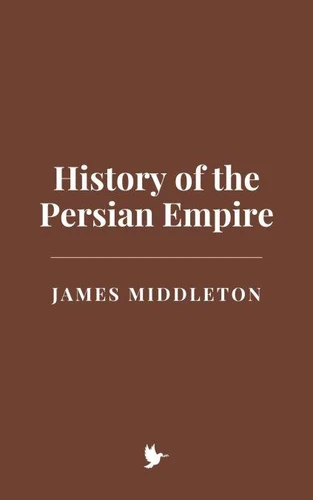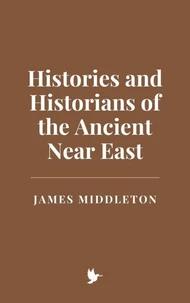History of the Persian Empire
Par :Formats :
Disponible dans votre compte client Decitre ou Furet du Nord dès validation de votre commande. Le format ePub est :
- Compatible avec une lecture sur My Vivlio (smartphone, tablette, ordinateur)
- Compatible avec une lecture sur liseuses Vivlio
- Pour les liseuses autres que Vivlio, vous devez utiliser le logiciel Adobe Digital Edition. Non compatible avec la lecture sur les liseuses Kindle, Remarkable et Sony
 , qui est-ce ?
, qui est-ce ?Notre partenaire de plateforme de lecture numérique où vous retrouverez l'ensemble de vos ebooks gratuitement
Pour en savoir plus sur nos ebooks, consultez notre aide en ligne ici
- FormatePub
- ISBN8224574551
- EAN9798224574551
- Date de parution15/01/2025
- Protection num.pas de protection
- Infos supplémentairesepub
- ÉditeurVirtued Press
Résumé
By the time Cyrus the Great began his conquests in the mid-6th century BCE, the Persian identity had crystallized into a formidable blend of warrior ethos, spiritual purpose, and political ambition. This identity would not only define their place in history but also resonate across millennia, influencing subsequent empires and civilizations. By the end of the 6th century BCE, the foundations of the Achaemenid Empire had been laid through a combination of military brilliance, political pragmatism, and cultural diplomacy.
The rise of the Achaemenids was not merely the story of Persian domination but a testament to their ability to create a political and cultural framework that would endure for centuries. In Cyrus the Great, the Persians found not only a conqueror but also a visionary leader whose policies of tolerance and integration redefined the nature of empire in the ancient world. The echoes of this vision can still be felt in modern discourses on governance, justice, and cultural coexistence, securing Cyrus' legacy as a pivotal figure in world history.
The rise of the Achaemenids was not merely the story of Persian domination but a testament to their ability to create a political and cultural framework that would endure for centuries. In Cyrus the Great, the Persians found not only a conqueror but also a visionary leader whose policies of tolerance and integration redefined the nature of empire in the ancient world. The echoes of this vision can still be felt in modern discourses on governance, justice, and cultural coexistence, securing Cyrus' legacy as a pivotal figure in world history.
By the time Cyrus the Great began his conquests in the mid-6th century BCE, the Persian identity had crystallized into a formidable blend of warrior ethos, spiritual purpose, and political ambition. This identity would not only define their place in history but also resonate across millennia, influencing subsequent empires and civilizations. By the end of the 6th century BCE, the foundations of the Achaemenid Empire had been laid through a combination of military brilliance, political pragmatism, and cultural diplomacy.
The rise of the Achaemenids was not merely the story of Persian domination but a testament to their ability to create a political and cultural framework that would endure for centuries. In Cyrus the Great, the Persians found not only a conqueror but also a visionary leader whose policies of tolerance and integration redefined the nature of empire in the ancient world. The echoes of this vision can still be felt in modern discourses on governance, justice, and cultural coexistence, securing Cyrus' legacy as a pivotal figure in world history.
The rise of the Achaemenids was not merely the story of Persian domination but a testament to their ability to create a political and cultural framework that would endure for centuries. In Cyrus the Great, the Persians found not only a conqueror but also a visionary leader whose policies of tolerance and integration redefined the nature of empire in the ancient world. The echoes of this vision can still be felt in modern discourses on governance, justice, and cultural coexistence, securing Cyrus' legacy as a pivotal figure in world history.














